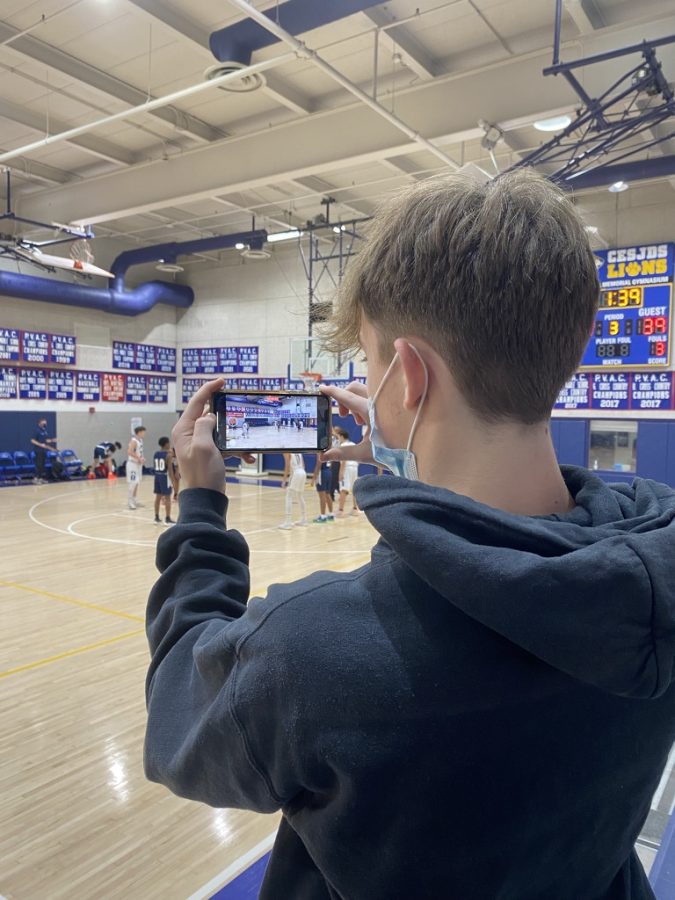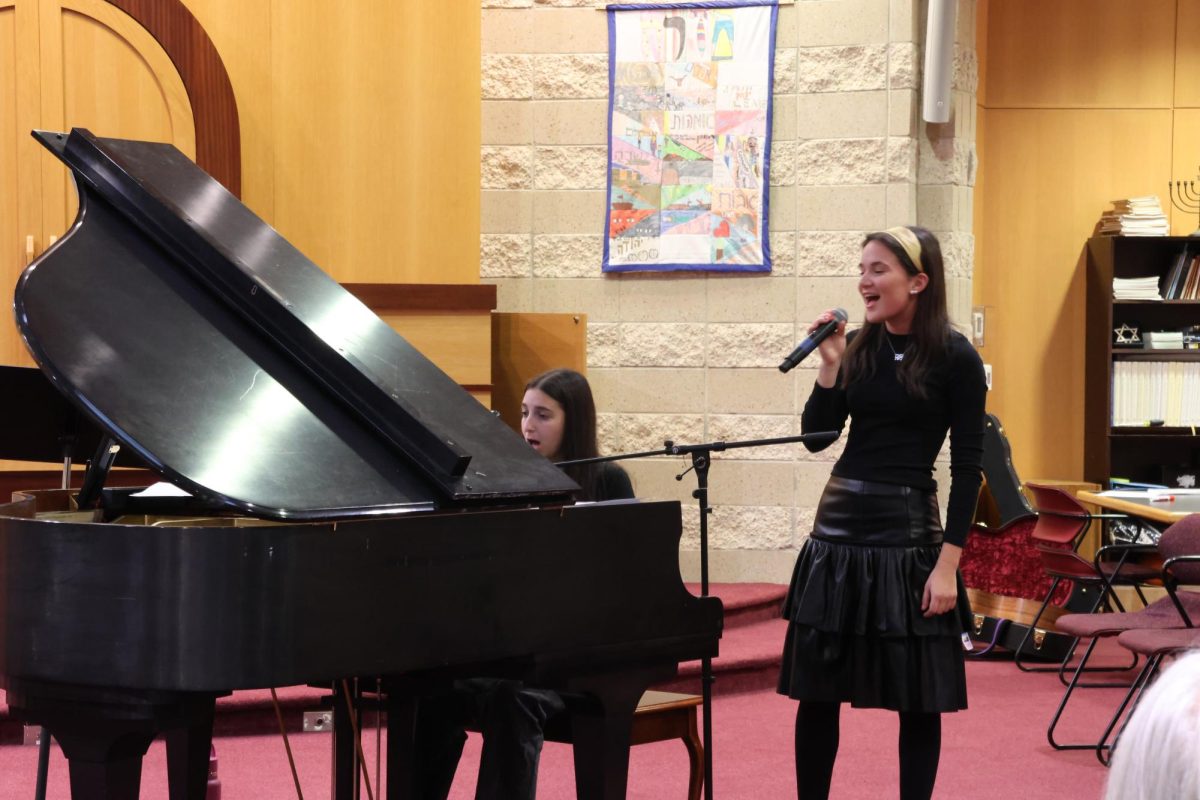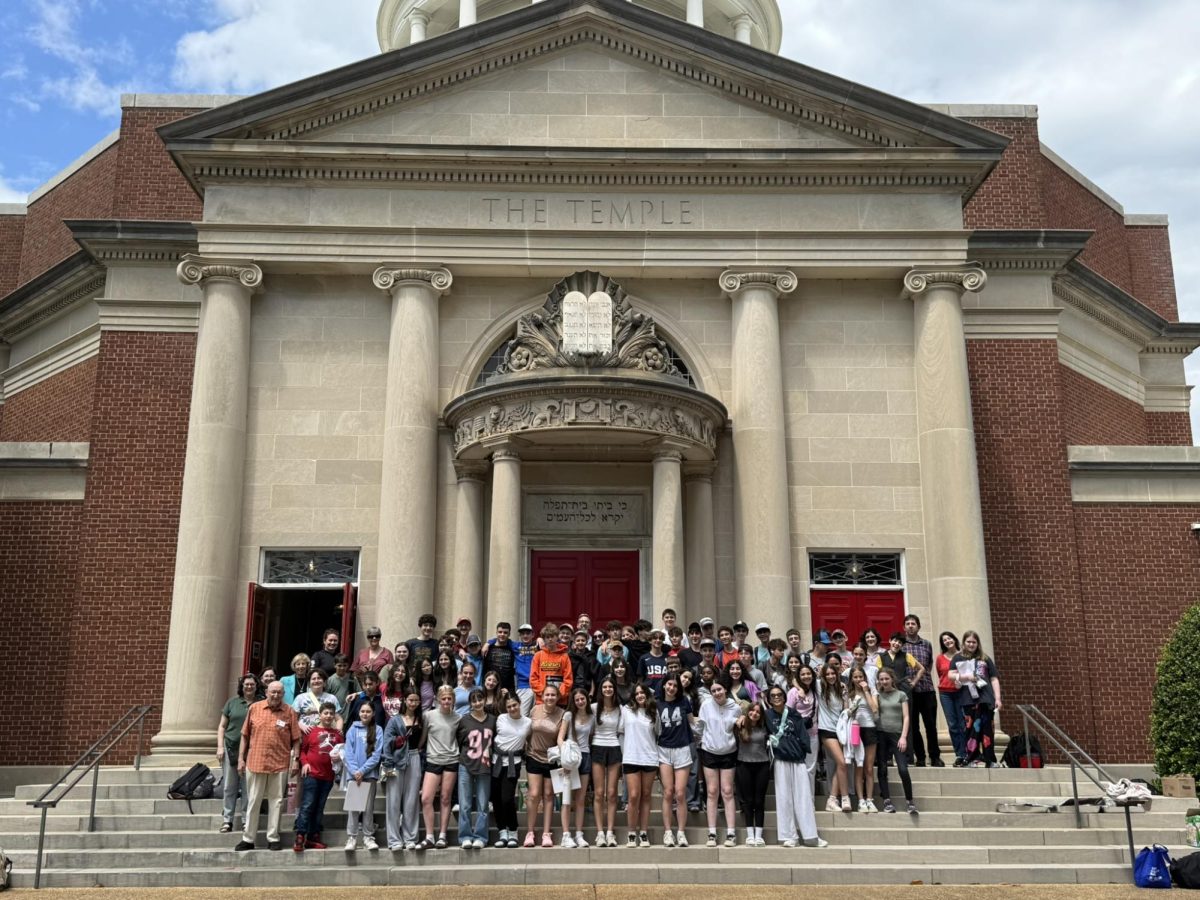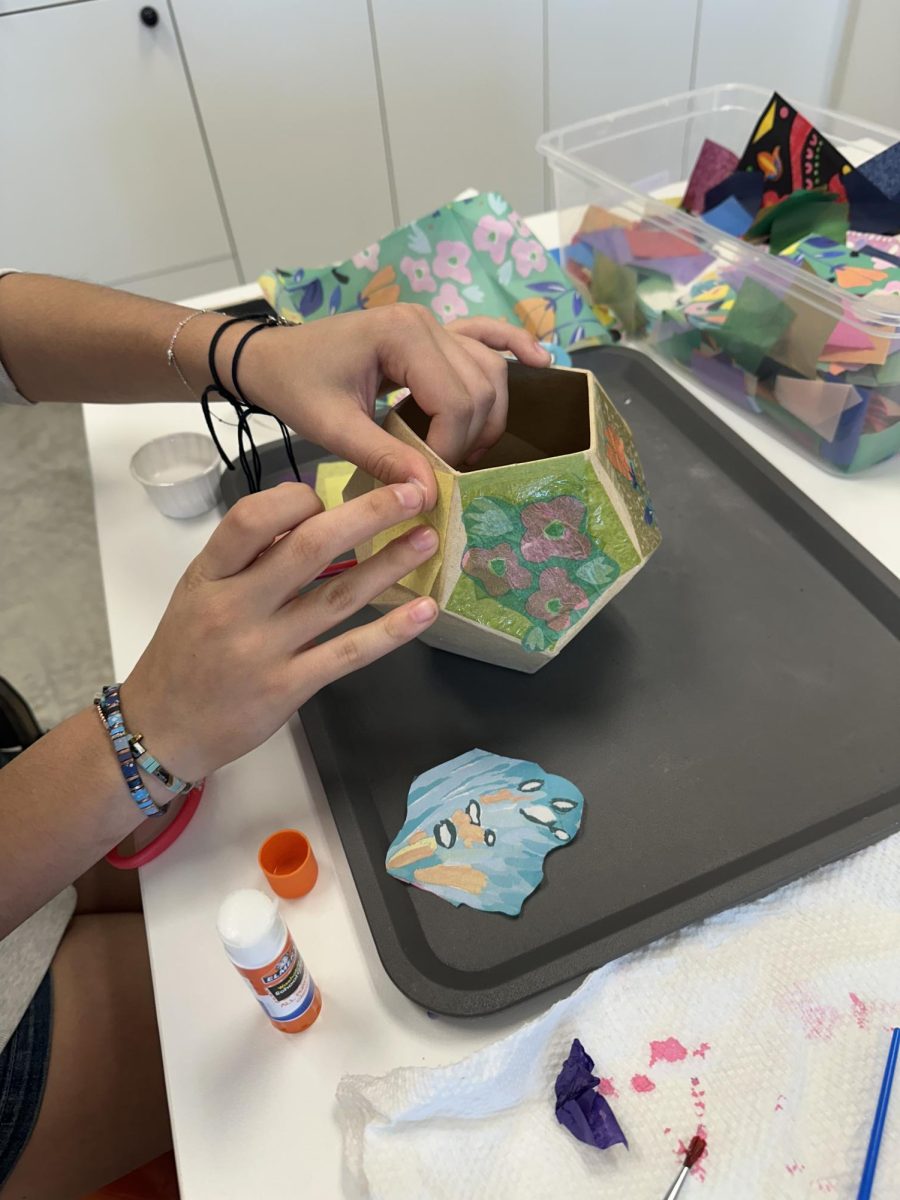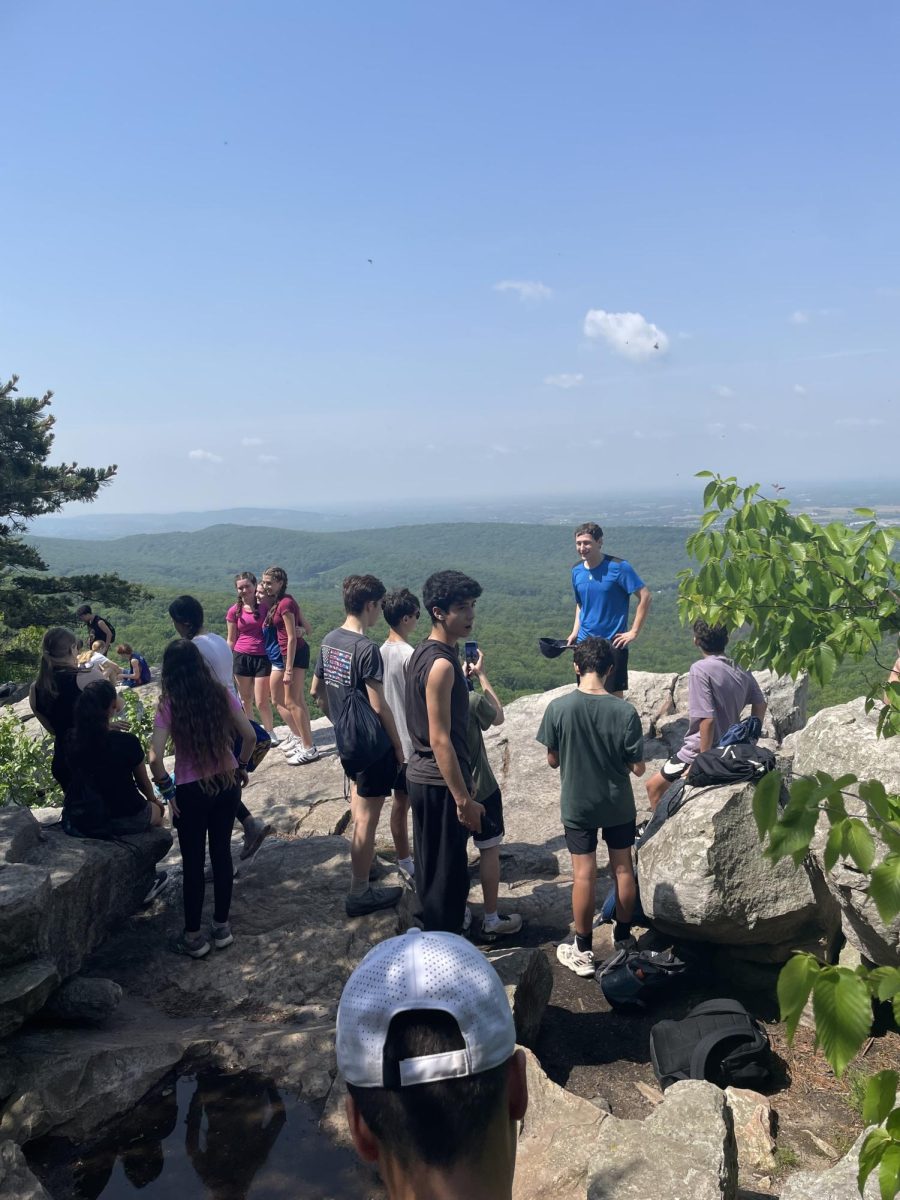The memories we don’t record are the memories we remember forever
January 26, 2022
Upbeat prayers and aromas fill my senses in the dining hall of Capital Camps during my grade’s Shabbaton. My classmates’ arms wrap around me as the atmosphere radiates with joy. I wish I could remember this moment forever.
Because it is a Shabbaton, none of us have our phones, and that only enhances the experience. Special times like these, when we are fully present and not focused on recording or photographing, are the experiences that we remember best.
The offloading theory in a study from the journal Psychological Science states that the act of taking a picture subconsciously indicates to our brains that it does not need to work as hard to store the memory because our phones store the memory for us. On the contrary, when we aren’t recording, our minds have to do more work to hold onto that memory.
When my class reads a section of Romeo and Juliet in English class, if I take notes, I am listening to the reading mindlessly. I am mostly focused on getting down the important information to study later. If I don’t take notes, I am more focused on how students are acting out the play, and what may be unique about the story itself. I know it is up to my brain to retain the essence of the plot, which increases my focus.
Also, recording an event only captures what the event looked like, which excludes the rest of our senses from the memory. We remember the aesthetics, not the experience.
The Pew Research Center describes a “reminiscence bump,” stating that 60% of adults’ memories are from the ages between 15 and 25 years old. Our most treasured memories come from our formative years, yet 84% of adolescents have phones, which leads them to capture a moment with a camera instead of their minds.
Do we really want our adult selves to remember taking a picture of a milestone rather than actually experiencing the event?
It is important to recognize our urge to document exciting moments, but resist from engaging with it. Next time something photo-worthy happens, challenge yourself to stay present. Put the camera aside and focus on the current sensations that make this moment a memory.


